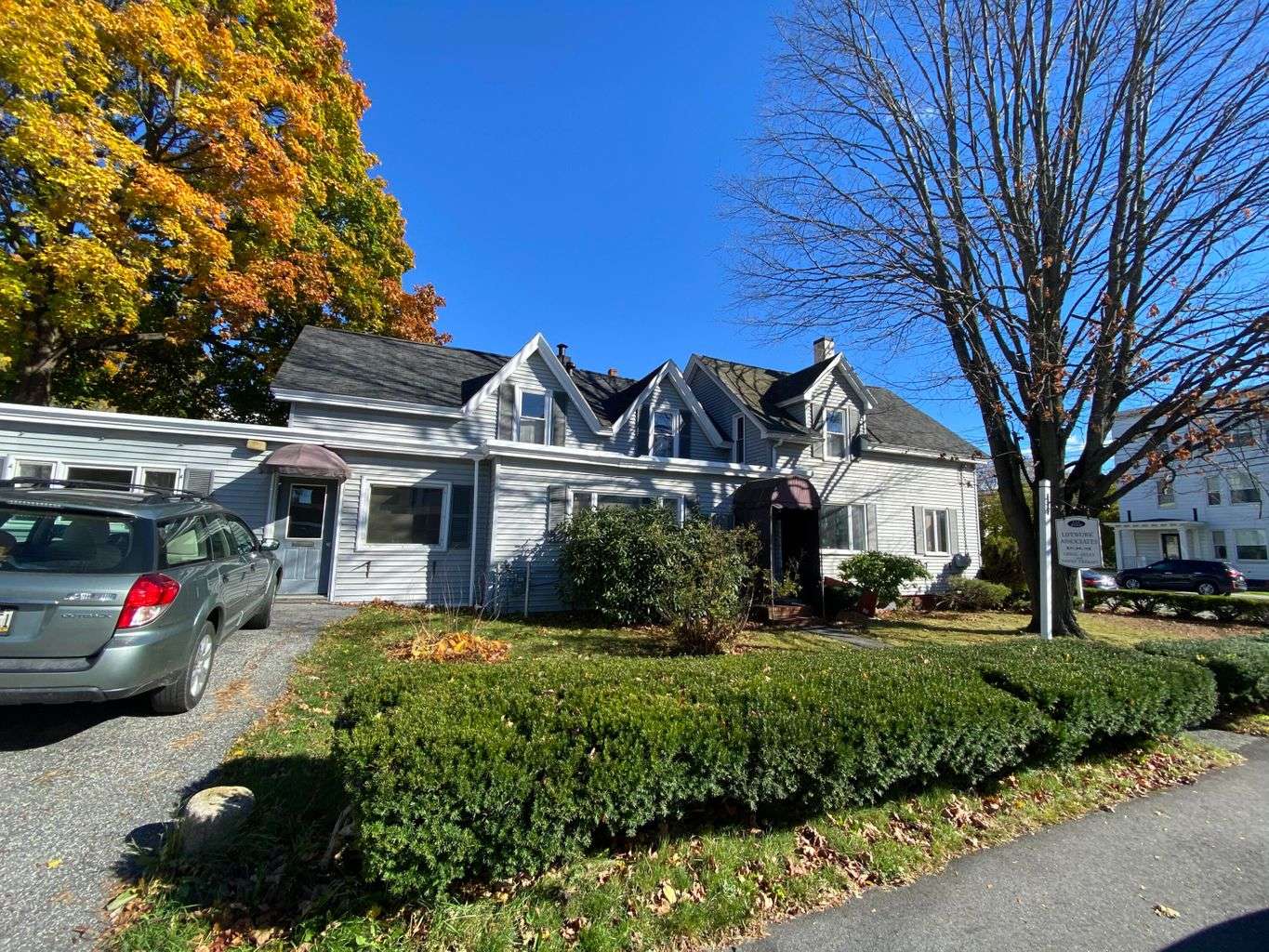
Processing Your Payment
Please do not leave this page until complete. This can take a few moments.
- News
-
Editions
View Digital Editions
Biweekly Issues
- December 1, 2025
- Nov. 17, 2025
- November 03, 2025
- October 20, 2025
- October 6, 2025
- September 22, 2025
- + More
Special Editions
- Lists
- Viewpoints
-
Our Events
Event Info
Award Honorees
- Calendar
- Biz Marketplace
Lewiston’s Somali Bantu association moves into larger quarters
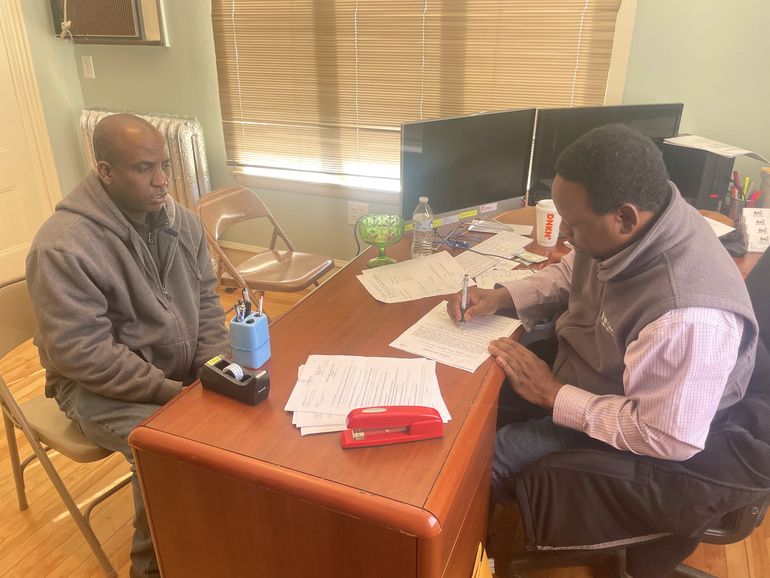 Courtesy / Somali Bantu Community Association of Maine
At right, Muhidin Libah, executive director of the Somali Bantu Community Association of Maine, helps a client with paperwork.
Courtesy / Somali Bantu Community Association of Maine
At right, Muhidin Libah, executive director of the Somali Bantu Community Association of Maine, helps a client with paperwork.
The Somali Bantu Community Association of Maine in Lewiston has moved from a small rental space to a much larger building it now owns.
“We always needed a big space,” said Muhidin Libah, the association’s executive director.
The association bought a two-story, 4,279-square-foot office building at 222 Pine St. from Frank J. Walsh in Lewiston for $254,000.

Noah Stebbins of the Boulos Co. and Renee Roy of Better Homes & Gardens|The Masiello Group, brokered the transaction.
The building includes six offices, a receptionist area, waiting room, two kitchens, 2019 natural gas boiler, vinyl siding, newer rubber roof, and newer bulkhead and stairs, according to the listing. The property, in the city’s downtown residential zone, was previously used as a counseling center.
Stebbins, who represented the association, said he began searching for larger digs for the association last summer.
Parameters included a standalone office, exclusively in Lewiston and ideally in the downtown.
The search took about nine months. When 222 Pine St. hit the market, the association immediately checked it out and made an offer.
“There’s a pretty large inventory of offices for lease, but to find an office building for sale is pretty challenging,” Stebbins noted.
Massive difference
The association was founded in 2005. Its mission is to provide transitional services, advocacy and food production that empowers members of the refugee community to uphold cultural identity and economic well-being to thrive in Maine, according to its website.
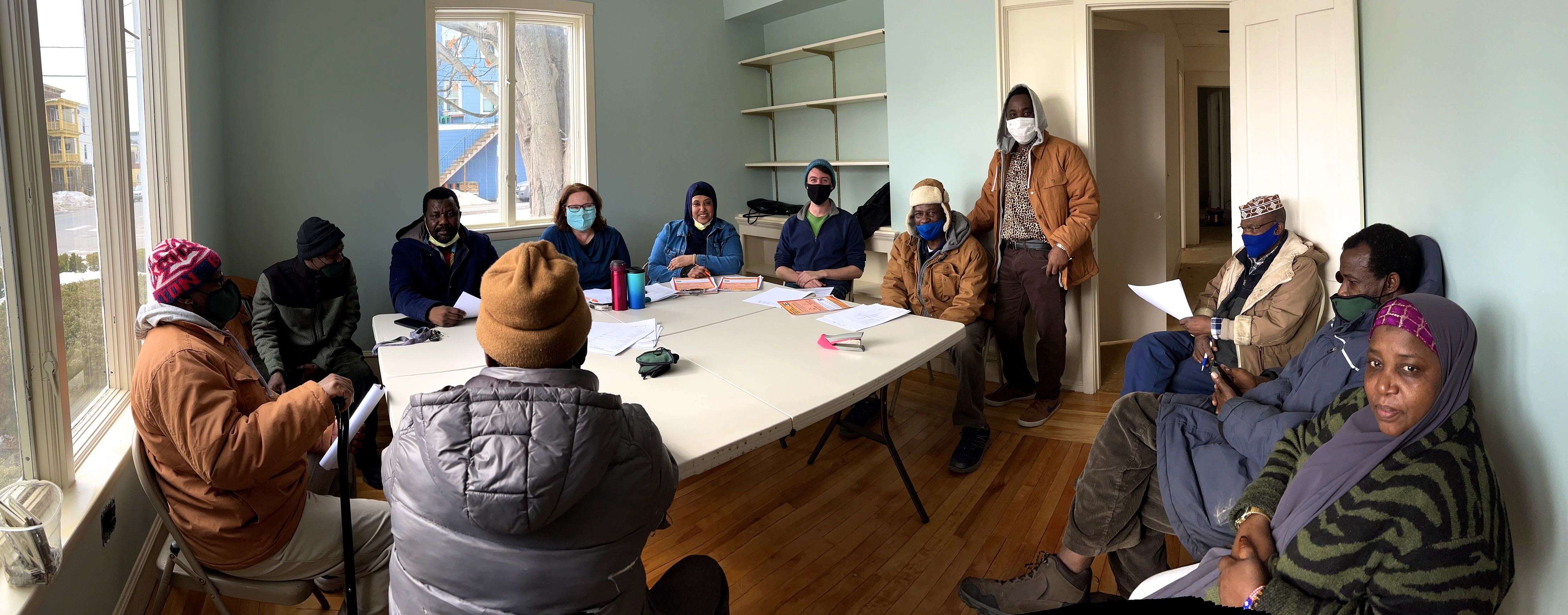
The location is serving as its new office headquarters.
“We went from 650 square feet to 4,200 square feet, which is an amazing difference,” said Sarah Robinson, the association’s office and finance coordinator.
Its previous headquarters was at 145 Pierce St. in Lewiston.
“We were seeing up to 100 clients per day in a 650-square-foot office, which is a lot,” said Robinson.
The smaller rental made it challenging to provide youth programs and other services, especially during the pandemic when social distancing was implemented, said Libah.
“There were programs the community loved,” he said. “We didn’t have the space for it since 2020. Now we have this massive space.”
The association moved into its new quarters in late February after initial renovations that included installation of new flooring, paint and lights, and electrical work. Jill Caron at JMC Electric in Sabattus changed the lighting and updated the electric system. Vinny Ly from Alpha Flooring in Portland refinished the floors.
Upcoming renovations include opening up some of the space to create a large conference room and installing an additional bathroom on the first floor.
Chad Latham at Listing Tunnel LLC in Portland created 3D pictures and layout of the buildings for the architect, James Beasley at ZeroEnergy Design in Boston, Mass., to redesign the large community space and conference room and the additional bathroom. Scott Doyon at JTK Construction in Wales is handling renovations.
Expected investment in the renovations is about $100,000.
The existing set-up – including individals offices and a waiting area – worked well for the association, noted Robinson.
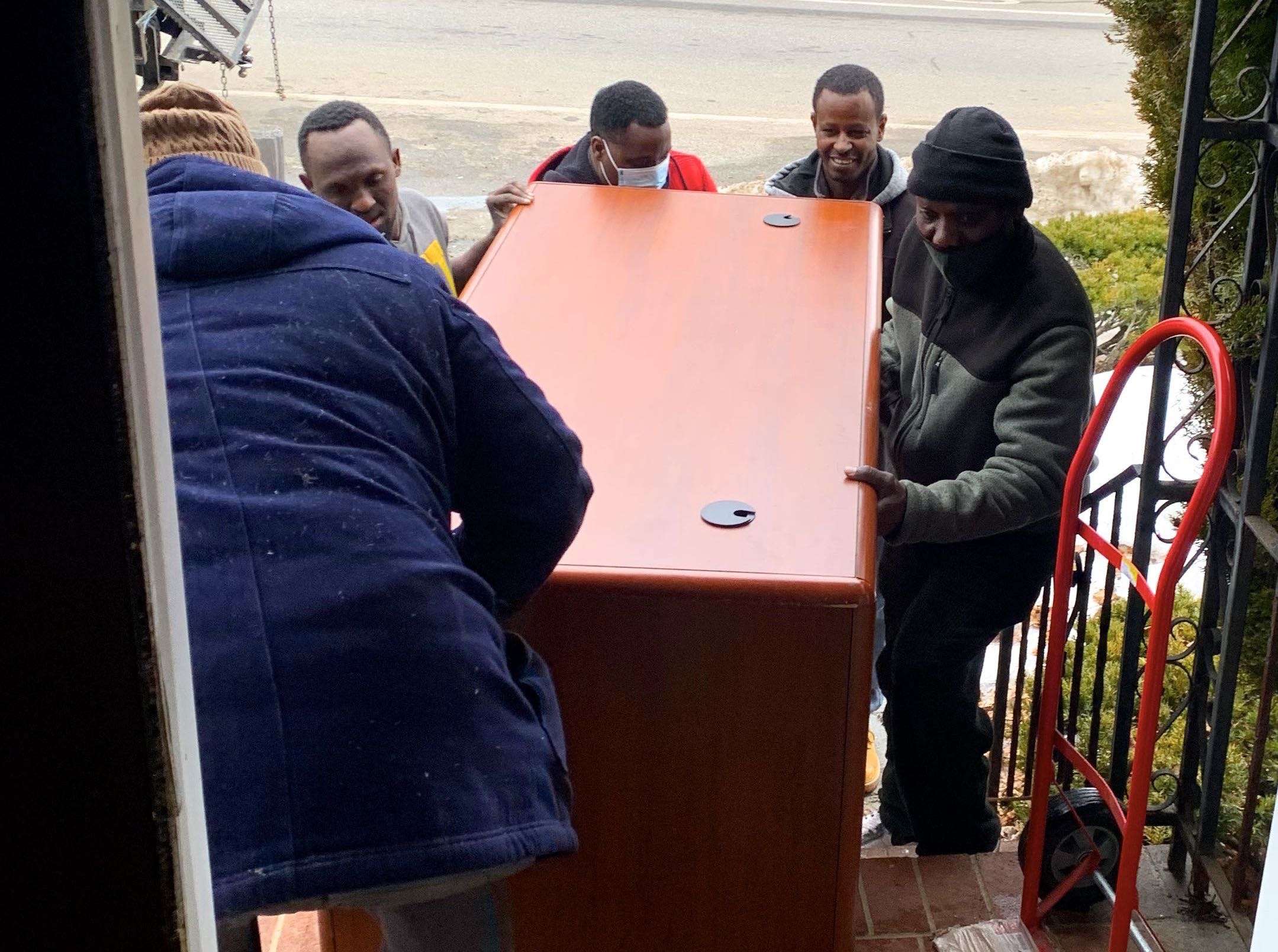
“The set-up was pretty fabulous for what we wanted,” she said. “But it didn’t have a bigger conference room.”
People rush in
The association’s services include community advocacy, such as conflict resolution, translation and interpretation, immigration services to assist in preparing for citizenship interviews and completing green card applications, and medical reconciliation that incorporates traditional and Western medicine and helps navigate topics such as prescriptions and insurance coverage.
The association runs a community farming program called Liberation Farms, which provides new American farmers access to, and culturally-appropriate resources for, the means of sustainable food production for themselves, their families and their communities.
Youth programs are called the Kashekee, or “Cultural Telling Room,” and include traditional dancing, music, basket-weaving, storytelling, film, an oral history. In partnership with Maine Refugee and Immigrant Services, the program supports Bantu youth through tutoring and homework help, field trips during the summer, and nutritious food provided by Lewiston Public Schools.
Libah said a typical day at the office includes helping clients navigate the various programs available to them and help with translation for paperwork, emails and phone calls.
“People rush into my office and say, ‘What does it say?’” he said. “Our work is to go through all the paperwork, prioritize which you have to respond to, and see if we can help them respond.”
The association also assists with childcare subsidy programs.
Many folks simply come to the office to socialize, he added.
“The office is the go-to,” he said. “This is a space where people come together to socialize and talk with friends. Many people just come for that.”
Use of the association’s services has grown tremendously over the years, he said.
“Every program we add brings in more people,” he said. “For example, our farming program brought 200 farmers to the organization. This is one of the pieces we do which is big, because is farming is our background. The Kashekee program brings a lot of kids.”
Anonymous donors provided the association with the down payment for the new headquarters. Erica Quin-Easter at the Genesis Community Loan Fund provided assistance to secure a loan for the property. Additional foundation support related to the acquisition included Maine Initiatives, Elmina B. Sewall Foundation, Fisher Charitable Foundation and Maine Health Access Foundation.
The association recently hosted the community’s elders to perform a blessing on the space, said Libah. The ceremony brought over 100 visitors.
“In our culture, before we move to a place, we bring in the all the elders to bless the space, to be prosperous and good for everyone, a welcoming space for everybody,” Libah said. “And there was some feast. It was really fun.”
Mainebiz web partners

The Giving Guide
The Giving Guide helps nonprofits have the opportunity to showcase and differentiate their organizations so that businesses better understand how they can contribute to a nonprofit’s mission and work.
Learn More
Work for ME
Work for ME is a workforce development tool to help Maine’s employers target Maine’s emerging workforce. Work for ME highlights each industry, its impact on Maine’s economy, the jobs available to entry-level workers, the training and education needed to get a career started.
Learn More
Groundbreaking Maine
Whether you’re a developer, financer, architect, or industry enthusiast, Groundbreaking Maine is crafted to be your go-to source for valuable insights in Maine’s real estate and construction community.
Learn more-
The Giving Guide
The Giving Guide helps nonprofits have the opportunity to showcase and differentiate their organizations so that businesses better understand how they can contribute to a nonprofit’s mission and work.
-
Work for ME
Work for ME is a workforce development tool to help Maine’s employers target Maine’s emerging workforce. Work for ME highlights each industry, its impact on Maine’s economy, the jobs available to entry-level workers, the training and education needed to get a career started.
-
Groundbreaking Maine
Whether you’re a developer, financer, architect, or industry enthusiast, Groundbreaking Maine is crafted to be your go-to source for valuable insights in Maine’s real estate and construction community.
ABOUT
NEW ENGLAND BUSINESS MEDIA SITES
No articles left
Get access now
In order to use this feature, we need some information from you. You can also login or register for a free account.
By clicking submit you are agreeing to our cookie usage and Privacy Policy
Already have an account? Login
Already have an account? Login
Want to create an account? Register
Get access now
In order to use this feature, we need some information from you. You can also login or register for a free account.
By clicking submit you are agreeing to our cookie usage and Privacy Policy
Already have an account? Login
Already have an account? Login
Want to create an account? Register
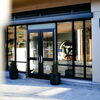



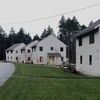
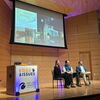

0 Comments